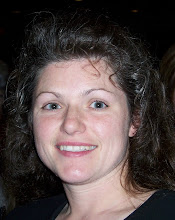
Mr. Pausch was a professor at Carnegie Mellon University and that is where he delivered his last lecture. He had been diagnosed with pancreatic cancer just one month before and had been told he had only three to six months of healthy life. He told his story of fulfilling his childhood dreams and enabling others to fulfill theirs. I discovered he lived longer than the doctors had expected, but still passed very young at the age of forty-eight. His last speech was one of the most inspirational speeches I have ever heard. At the end, he told his audience that the speech was not for them, but for his children. I enjoy bits of information to remember and below are a few of some of the wonderful things he had to say.
"Brick walls are there for a reason: they let us show our dedication and prove how badly we want things."
"Experience is what you get when you didn't get what you wanted."
"Millions of kids are having fun while learning something hard. That's pretty cool"
"The best way to teach somebody something is to have them think they are learning something else." = "head fake"
"You just have to decide if you are a Tigger or an Eeyore."
"When you do the right thing, good things have a way of happening."
"Be good at something, it makes you valuable."
"Be prepared: "luck" is where preparation meets opportunity."
"Find the best in everybody: no matter how long you have to wait for them to show it."
"Never loose the child like wonder. It's too important. It's what drives us."
If you would like to hear some very encouraging words to brighten your day, you can click the link below to watch the entire speech
RANDY PAUSCH'S LAST LECTURE







